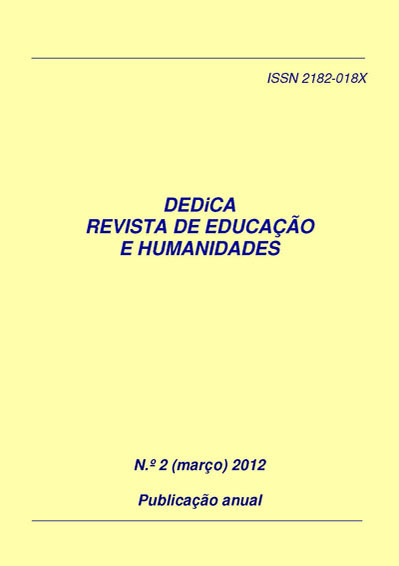Time to think
DOI:
https://doi.org/10.30827/dreh.v0i2.7119Keywords:
In the complexity of today’s world, so abundant with terms as over used and unclear as globalization, multiculturalism, inter-culturalism, sustainable consumption and suchlike, with teaching staff burdened by exhaustive and unclear regulations and complexAbstract
In the complexity of today’s world, so abundant with terms as over used and unclear as globalization, multiculturalism, inter-culturalism, sustainable consumption and suchlike, with teaching staff burdened by exhaustive and unclear regulations and complexity mentioned where there is only confusion, it seems appropriate to restore terms and concepts to their basic meaning by assuming the paradox of simplifying our mind in order to accept complexity as the sum of elements which, together and not separately, create reality. This is not about a juxtaposition of elements, but about their overlapping into a guiding thought. A world through the vertiginous process of transforming itself, in which knowledge emerges almost daily already obsolete or incomplete, demands answers with an open, comprehensive and flexible mind; one that is both wide and humble in its awareness that we live through constant learning and that, we find our identity in the development of that demanding exercise of meditated adaptation, while trying to cooperate with those in the process of acquiring an education to achieve it. Thus, I vindicate both the teaching staff’s obligation and right to think, assuming responsibility for their thought.Downloads
References
BOCM (2011). Boletín Oficial de la Comunidad de Madrid. Jueves, 16 de junio de 2011. Consejería de Educación. Decreto 36/2010, de 2 de junio, del Consejo de Gobierno, por el que se establece el Plan de Estudios para la Comunidad de Madrid, de las enseñanzas artísticas superiores de Grado en Música.
Coll, C.; Falsafi, L. (2010). Presentación. Identidad y educación: tendencias y desafíos. Revista de Educación, 350 (2010) Septiembre-Diciembre, 17-27.
Del Campo, J. (1999). Multiculturalidad y conflicto: percepción y actuación. En M. A. Essomba (Coord.). Construir la escuela intercultural. Reflexiones y propuestas para trabajar la diversidad étnica y cultural, 47-53. Barcelona: Graó.
Essomba, M. A. (Coord.). Construir la escuela intercultural. Reflexiones y propuestas para trabajar la diversidad étnica y cultural. Barcelona: Graó.
Esteve, J. M. (2004). La formación del profesorado para una educación intercultural. Bondón, 56, 1 (2004) 95-115.
Elliot, D. J. (1995). Music Matters. A New Philosophy of Music Education. Oxford: Oxford University Press.
Kase, K; Slocum, A.; Zhang, Y. Y. (2011). Asian versus Western Management Thinking. Its Culture-Bound Nature. New York: Palgrave Macmillan.
Leiva Olivencia, J. J. (2007). Educación y conflicto en escuelas interculturales. Tesis Doctoral. Facultad de Ciencias de la Educación. Departamento de Teoría e Historia de la Educación. Universidad de Málaga. Consultado en 23/10/2011. Disponible en:
http://www.biblioteca.uma.es/bbldoc/tesisuma/16851717.pdf
LOE (2006). Ley Orgánica 2/2006, de 3 de Mayo, de Educación. B. O. E, 4 de Mayo.
López de Arenosa Díaz, E. (2010). Pensemos. ¿Son las competencias un puente hacia lo intercultural? En torno a la Educación Musical Superior. En F. S. Ramos (Coord.), Tendiendo Puentes hacia la Interculturalidad, 51-97. Granada: Ediciones K&L.
Morin, E. (2011). Los siete saberes necesarios para la educación del futuro. Barcelona: Paidós.
Mortimer, K. S.; Wortham, S.; Allard, E. (2010). Helping immigrants identify as “university-bound students”: unexpected difficulties in teaching the hidden curriculum. Nº monográfico sobre Identidad, Revista de Educación, Septiembre-Diciembre (2010) 107-128.
Ortega y Gasset, J. (2005). Meditaciones del Quijote. Madrid: Revista de Occidente, Alianza Editorial.
Ramos, F. S. (2011). Determinación del rol de la intersubjetividad y de la eticidad en las biografías educativas de un grupo de profesores. Granada, Universidad de Granada (Tesis Doctoral en conclusión).












